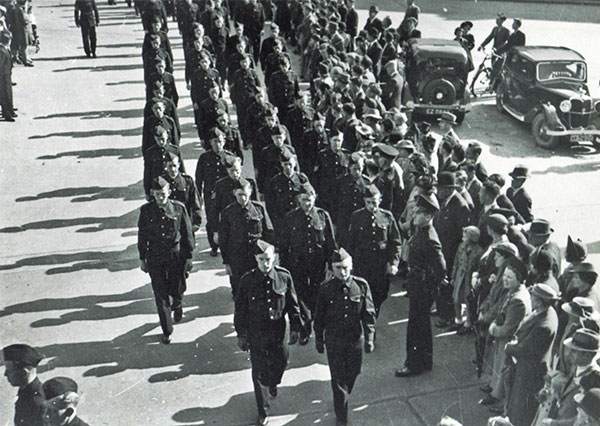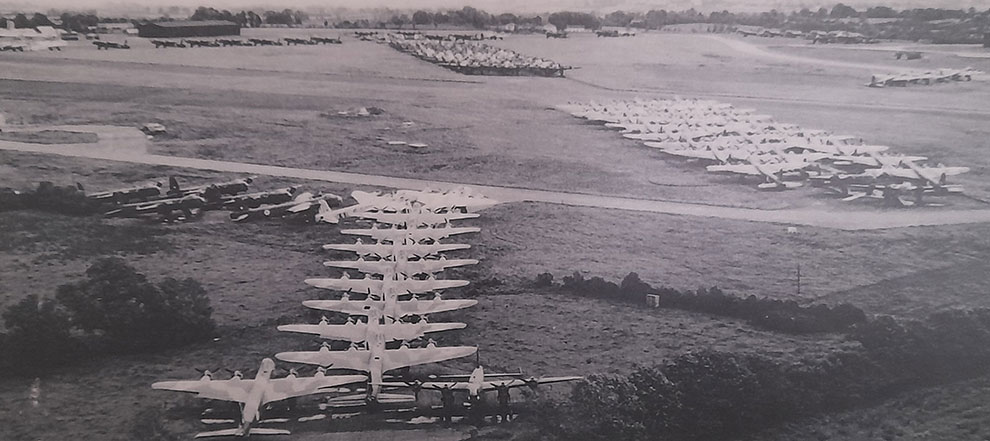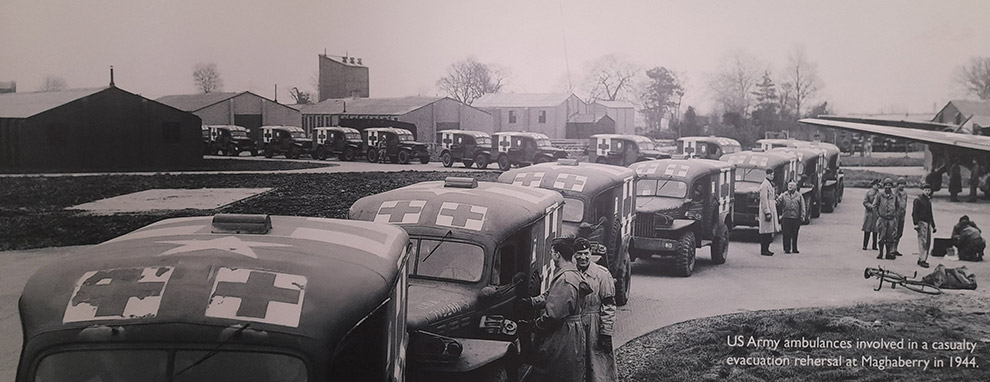
During the Home Rule Crisis of 1912, Soldierstown, like many areas, answered the call of Edward Carson and established a group of Volunteers. They joined other local groups to form the 2nd Battalion of the South Antrim UVF.
In opposition to Home Rule, 380 people signed the Ulster Solemn League and Covenant in Soldierstown Church Hall on Ulster Day 1912; and a further 458 signed it in the nearby Parochial Hall in Aghalee.
Many of the local men who joined the UVF in 1912 went on to join the ranks of the 36th Ulster Division in 1914 at the outbreak of WWI. Some fought and some were killed at the Somme.
The names of all those who served in WWI are listed on the war memorial in the church. The memorial also includes the names of those who were killed in WWI, WWII and the N.I. ‘Troubles’.
The church organ was installed in 1922 and dedicated to those who lost their lives and those who served in the Great War, as previously mentioned.
At the start of WWII, an airfield was built at Maghaberry on the site where the prison now stands.

It has been said that no planes flew in anger from Maghaberry; it was an RAF satellite base for training, maintenance and coastal surveillance. Following the war it was used to break down and de-commission aircraft.
During WWII, the U.S. Air Force was based at Langford Lodge, near Crumlin, and used other airfields including the one at Maghaberry.

American troops were stationed at Ballinderry in an area known as ‘The Camp.’ (opposite Brown’s Garage, Glenavy Road).
Some military personnel were also based at Broommount, opposite Soldierstown Church. Local residents remember tents set up along the Soldierstown Road and troops and military vehicles lined up amongst the trees. As Broommount was a working farm, troops sometimes helped with the potatoes and crops.
American troops often attended local dances and public houses and were usually welcomed. However, one tragic incident led to the murder of Edward Clenaghan, the son of the landlady of Clenaghan’s Bar at Soldierstown. Having reported two G.I.s to their Commanding Officer for drinking too heavily and refusing to leave the premises, Edward was later confronted by the two men and died of his injuries the next day.
